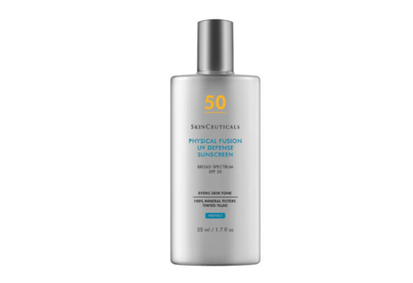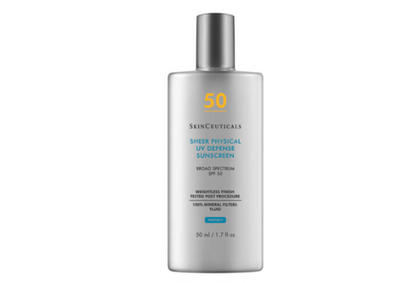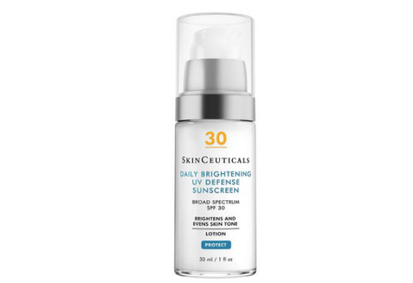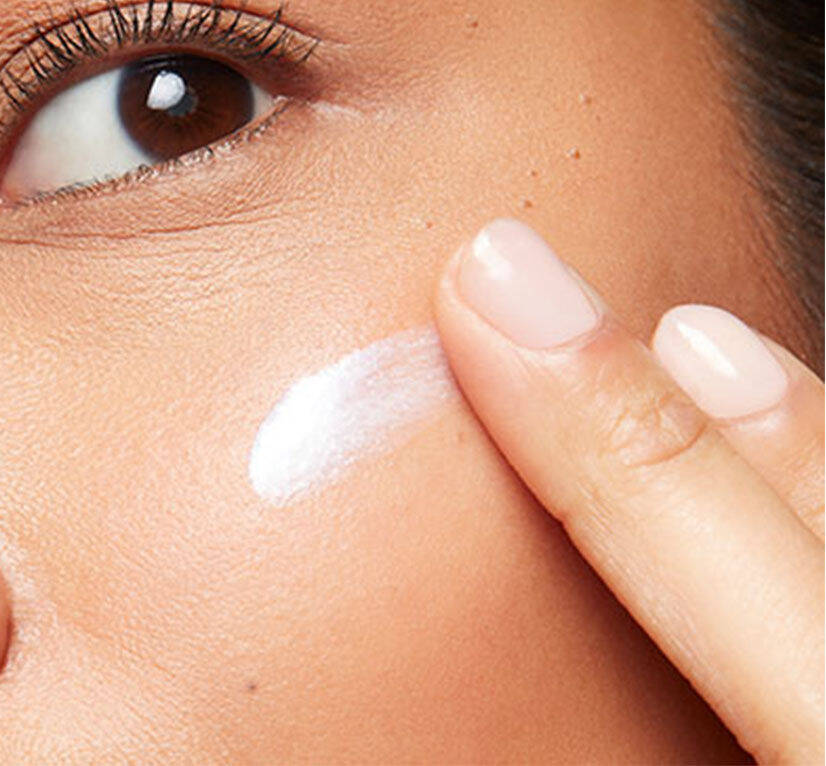Article Overview
- Mineral sunscreens contain active mineral ingredients like zinc oxide and titanium dioxide, which work by sitting on top of the skin and reflecting UV rays.
- Chemical sunscreens contain organic (carbon-based) compounds that absorb UV rays and convert them into heat.
- SkinCeuticals offers mineral sunscreens like Physical Fusion UV Defense SPF 50 and Sheer Physical UV Defense SPF 50, which provide broad-spectrum protection against UVA and UVB rays.
- Mineral sunscreens are suitable for all skin types, including sensitive skin, and they offer immediate protection upon application.
- Chemical sunscreens, such as the SkinCeuticals Ultra Facial Defense SPF 50, are also available and offer lightweight, non-greasy formulas that are easily absorbed into the skin.
- Both mineral and chemical sunscreens are effective in protecting the skin from sun damage, but individuals may have personal preferences based on their skin type and specific needs.
A broad-spectrum sunscreen is an essential part of any morning skincare routine in order to shield the skin from damaging UVA and UVB rays throughout the day. Yet with so many sun-protection options to choose from, it may be hard to decide which one is best for you. To better understand the various types of sunscreens, ingredients, and formulations, taking a closer look at mineral vs. chemical sunscreen options is an ideal place to start. The main difference between physical and chemical sunscreens comes down to the active UV-filtering ingredients. In fact, these two types of sunscreens work in different ways to protect the skin from the sun.
“The main difference between physical and chemical sunscreens comes down to the active UV-filtering ingredients.”
Mineral-based Sunscreen Ingredients
Mineral (or physical) sunscreens are formulated with inorganic UV filters such as zinc oxide and/or titanium dioxide. The difference between physical and chemical sunscreen is that mineral-based active ingredients sit on the surface of the skin and reflect the sun’s rays.
PROS:
- Generally a better fit for sensitive skin
- May offer more hydrating benefits
- Often recommended after professional office-based treatments
CONS:
- May be more difficult to blend into the skin, however newer matte and tinted formulations help minimize a white cast and can leave the skin with a smooth, even appearance
SkinCeuticals Mineral-Based Sunscreens

Physical Fusion UV Defense Sunscreen SPF 50
This lightweight tinted fluid provides 100%-mineral protection for all skin types and features artemia salina. Its iron oxide color spheres instantly boost skin radiance and provide a universal tint that enhances most skin tones.

Sheer Physical UV Defense Sunscreen SPF 50
Offering ultra-sheer mineral-based protection and a weightless matte finish for all skin types (including sensitive), this artemia salina-infused formulation spreads easily and dries quickly without leaving any residue behind.
Chemical-Based Sunscreen Ingredients
The active ingredients in chemical sunscreens are organic UV-blockers. A few ingredient names include avobenzone, homosalate, octisalate, and octocrylene. When comparing mineral vs. chemical sunscreen, chemical-based formulas are absorbed into the skin where they absorb UV rays and convert them into heat that is released from the body.
PROS:
- Ideal for water-resistant formulations used for swimming and outdoor activities
- Generally is absorbed quickly into the skin
- Does not leave skin with a white cast
CONS:
- May not be well-tolerated by sensitive skin
SkinCeuticals Chemical-Based Sunscreen

Daily Brightening UV Defense Sunscreen SPF 30
This dual-action sunscreen offers broad-spectrum protection against UVA and UVB rays as well as proven improvement in visible discoloration with 1% tranexamic acid, 2% niacinamide, and 0.3% phenylethyl resorcinol. The hydrating formula provides immediate and all-day hydration as it instantly enhances skin radiance.
SkinCeuticals Hybrid Sunscreens
Hybrid sunscreen combines both mineral and chemical filters to provide protection from UV damage.
Must-Know Information About SkinCeuticals Sunscreens
Whether you choose mineral vs. chemical sunscreen, it’s imperative to apply sun protection correctly. This means applying a generous, even layer to the face, neck, and chest 15 to 30 minutes before sun exposure and applying makeup. It’s also important to reapply sunscreen after swimming, sweating, immediately after towel drying, and at least every two hours. It’s a fact that most people do not apply enough sunscreen to obtain the level of protection stated on the bottle. As a general rule, a nickel-sized dollop should be used for the face alone, while the equivalent of a shot glass (three tablespoons) of sunscreen is necessary to protect exposed areas of the face and body.1

Whether you opt for mineral vs. chemical sunscreen, daily use is non-negotiable for optimizing the health and appearance of the skin—and either of these two types of sunscreens should be the final step of your morning skincare routine. For comprehensive protection against environmental aging, pair your sunscreen of choice with a topical vitamin C antioxidant. When used together daily, sunscreen and a vitamin C serum help protect the skin from UV rays and environmental free radicals that can contribute to premature visible signs of aging.
Everyone’s skin is different, and SkinCeuticals is here to help you understand the difference between physical and
chemical sunscreen. To find the ideal sun protection for your skin and lifestyle, use our online Advanced Routine Finder, visit one of our SkinCeuticals SkinLab™ locations, or schedule
an appointment with a SkinCeuticals Skincare
Professional for a one-on-one consultation.
Next: What is the Difference Between UVA and UVB Rays?
1 https://www.skincancer.org/blog/ask-the-expert-how-much-sunscreen-should-i-be-using-on-my-face-and-body/
Shop Featured Products
About Gretchen Wobensmith
Gretchen Wobensmith is a licensed aesthetician with 27 years of experience. She has been training professionally for large global brands for the last 20 years. Gretchen brings her skill set of having a deep understanding of skin histology and ingredient technology to the SkinCeuticals Global Education Team as their Product Lead. Gretchen shares her passion for mentoring skin care professionals, to elevate their knowledge and skill set in the medical skin care industry.




